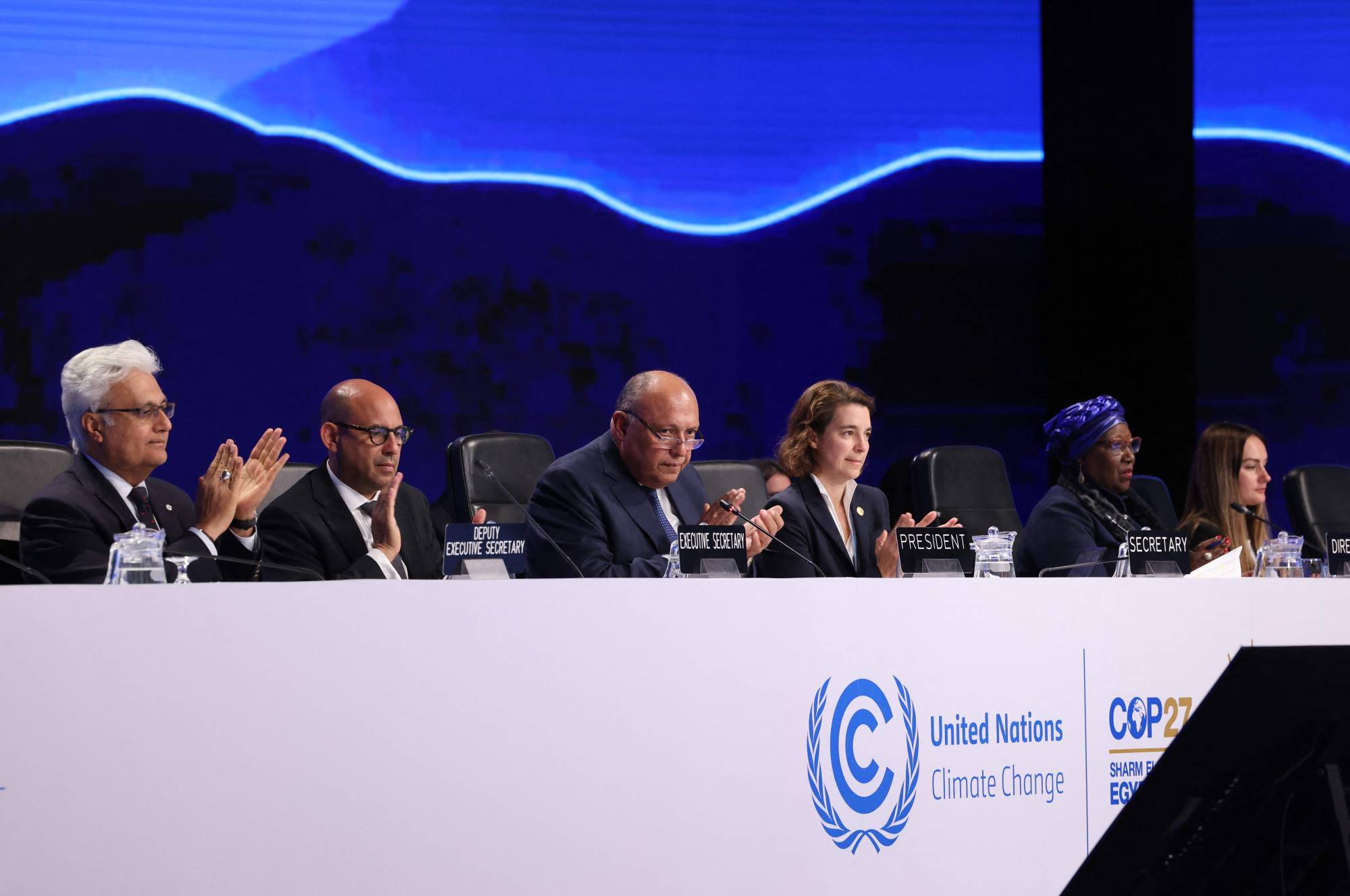They got there in the end. After dawn on Sunday morning in Egypt, bleary-eyed ministers adopted a final agreement for COP27 and completed more than two weeks of U.N. climate negotiations in the Sinai peninsula.
The deal included a historic provision to set up a fund to help poorer countries face the harm caused by climate change, and that outcome was understandably celebrated by nations on the front line of a warming world. "A mission 30 years in the making has been accomplished,” said Molwyn Joseph, the minister from Antigua and Barbuda and chair of the AOSIS group of small island nations.
But beyond loss and damage — the COP-world term for paying up for climate catastrophes — the final deal was a clear disappointment for those wanting to ratchet up the ambitions of last year’s Glasgow agreement. The statement didn’t include a commitment to broaden the pledge to phase down unabated coal emissions to cover all fossil fuels, and there was no reference to global greenhouse gas emissions peaking by 2025.


















With your current subscription plan you can comment on stories. However, before writing your first comment, please create a display name in the Profile section of your subscriber account page.